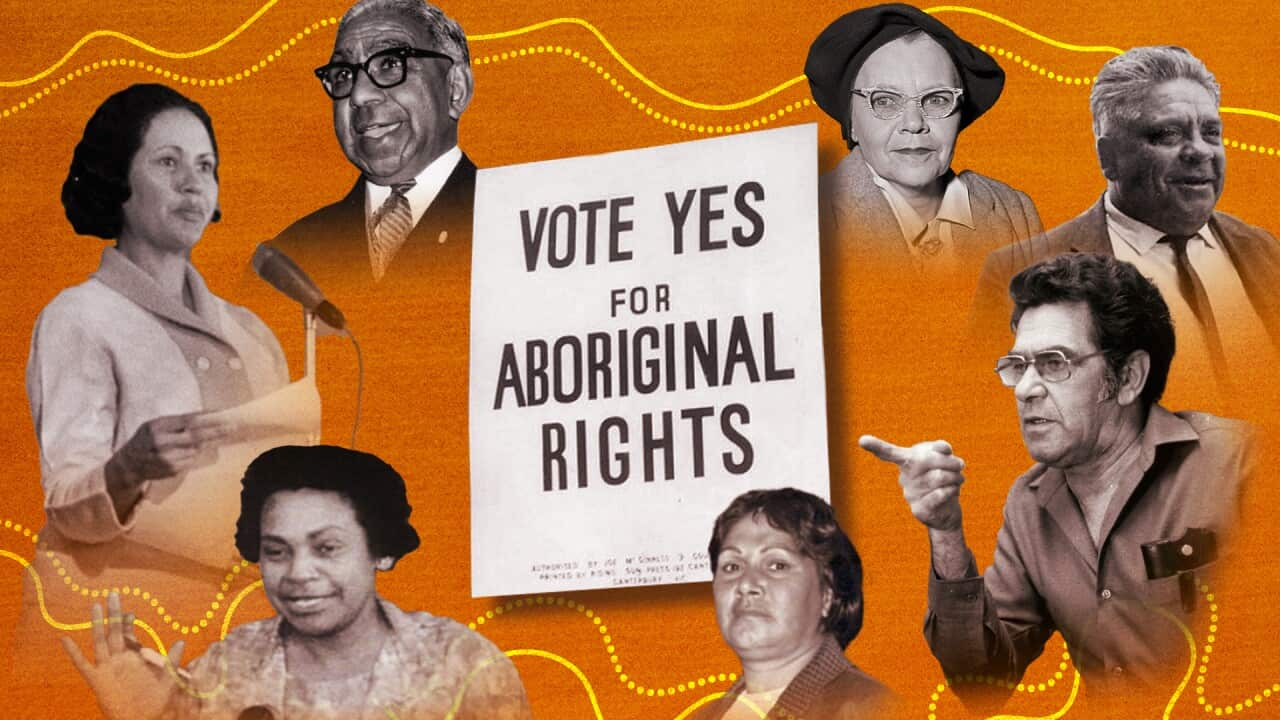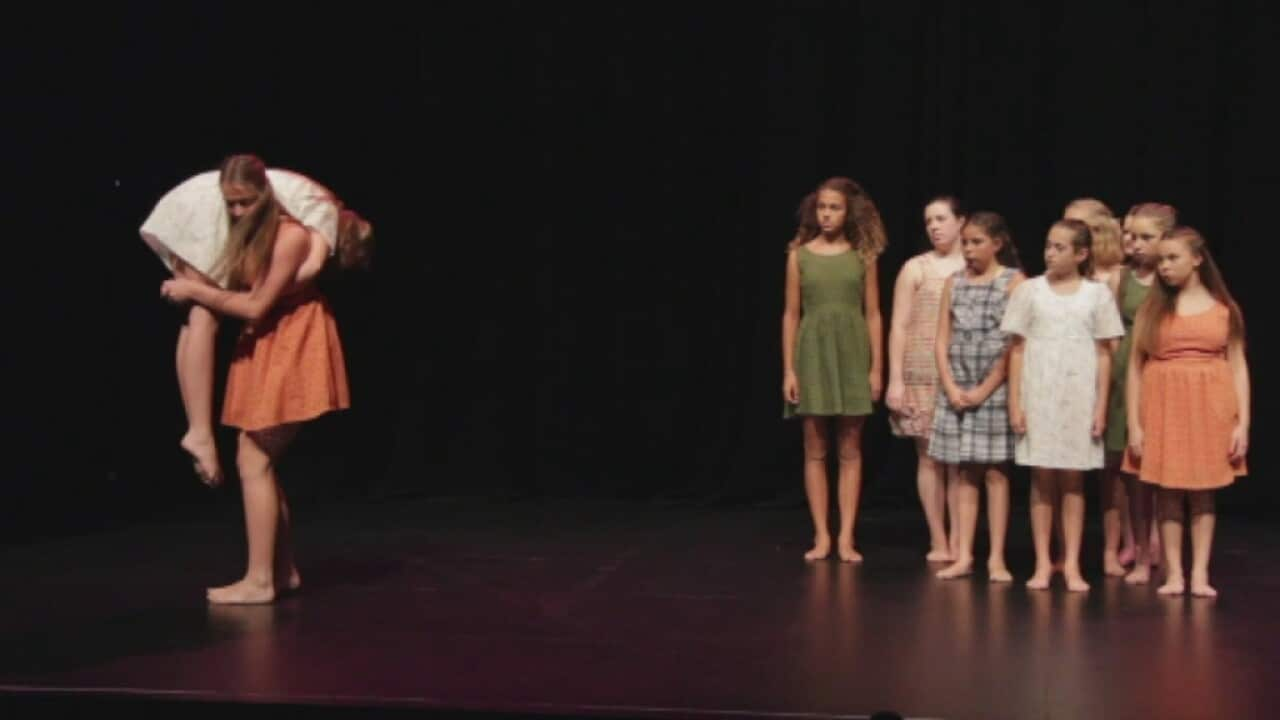When Widjabul Wiabal and Githabul man Francis Roberts dined with Japanese Emperor Hirohito in 1964, it was worlds away from Cubawee, the Aboriginal reserve where he grew up a few kilometres outside of Lismore.
Roberts, a boxer, was one of three Aboriginal people who travelled to Japan to compete in the Tokyo Olympics.
Despite his achievement, it was still a time of extreme discrimination; he couldn't even use an Australian passport because he wasn't recognised as a citizen.
Rhoda Roberts, artistic powerhouse and SBS Elder in residence, is telling Francis' story in a new production, 'My Cousin Frank', directed by Kirk Page for Norpa.
Kirk and Rhoda have been working with her immediate and extended family, the Widjabul Wiabul community for more than two years, since Roberts began thinking about a project that would show some of the strengths of Lismore in the wake of bushfires and catastrophic floods.
While telling her cousin Frank's story is a natural fit, it also carries the weight of cultural load, and a pressure to do justice to such an inspiring journey, from the mission to the Olympic stage.

Francis Roberts, right, with fellow 1964 Olympic boxers Tony Barber and Athol McQueen. Credit: Sheridyn Dalton
"People don't understand the history," Roberts told NITV.
"If you go from our great-grandparents down, they were living under the Protection Act.
"There were all these policies and controls on the way they were living, on the mission, the rations, the wages.
"There's all this other political movement which has shaped us, but a lot of Australians wouldn't know the truth of those sorts of Aboriginal Protection Board policies that affected everyone's lives."
My Cousin Frank provides insight into why boxing was so important to the Roberts family, as it was to many Aboriginal families, and into the story of Cubawee.
"Cubawee was self managed by my grandfathers, whereas most reserves were managed by a non-Indigenous mission manager," Rhoda said.
"When you talk to all my cousins who grew up there, they always talk about it as being full of love, but it was hard.
"They were living in poverty, but there was that real sense of family and community."
Page was attracted to the story by its significance and emotional depth, and the chance to work with Rhoda.
"These men who endured, it wasn't [an] easy sport. There were deaths," he said.
"Isn't it fascinating that these men who were putting that fight into the ring and changing their own lives and changing the trajectory of their families through that sport?"
My Cousin Frank includes some truth-telling that non-Indigenous audiences might find challenging, but for Page that's one of the strengths of the arts.
"It happens a lot, I think, with our stories," he said.
"It's a success story, isn't it, coming from nothing and then becoming something, and then: what does that mean to make it?
"Because that's a whole other story as well – you're in the news, you build yourself up, and then you become a representative."
Page and Roberts are already planning to build My Cousin Frank into a larger production for next year, The First Aboriginal Olympian.
READ MORE

Boxing For Palm Island S1 Ep1
"As Blackfellas you're very aware that you're not just simply telling a story or doing a theatre production - this is someone who was great but it's also a family story and it's theatre, so you have to bring different layers to it," Rhoda said.
"What a great opportunity to want to tell the story of the first Aboriginal Olympian, it's got that global human story.
"But also it just shows that against the odds, you can achieve anything in this great country of ours."
Norpa's production My Cousin Frank is on at the Star Court Theatre in Lismore on August 24, and the Byron Theatre on August 30 and 31.
* There were three Aboriginal members of the 1964 Australian Olympic team, Francis Roberts, fellow boxer Adrian Blair and basketballer Michael Ah Matt.














